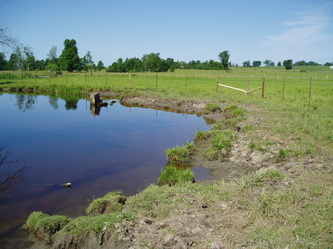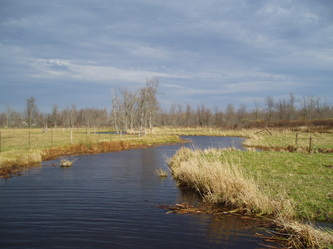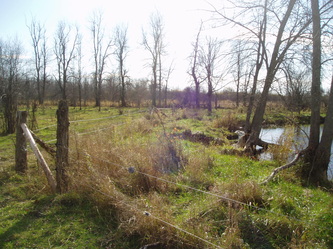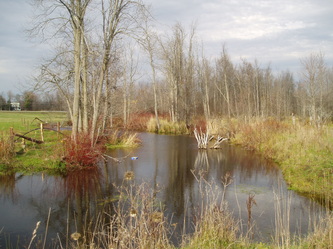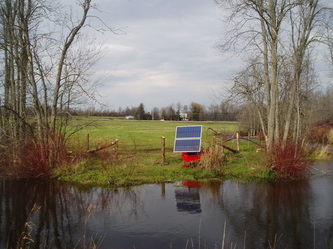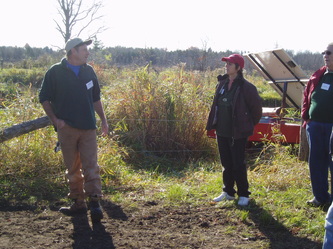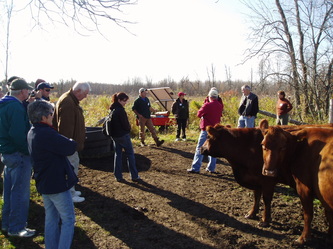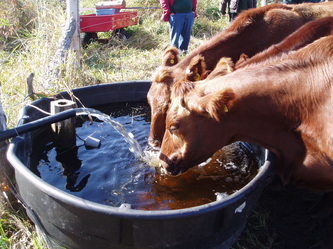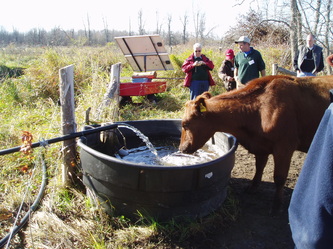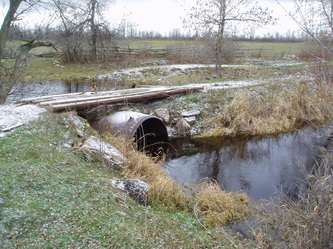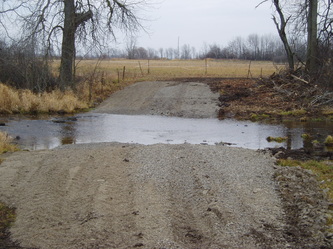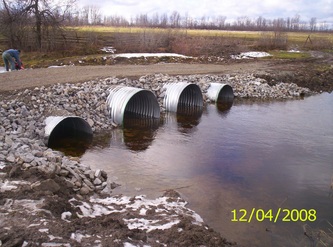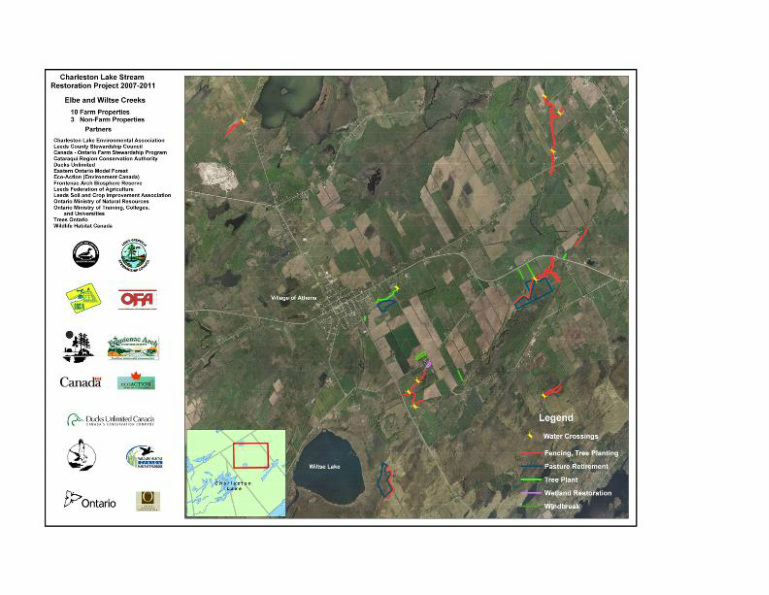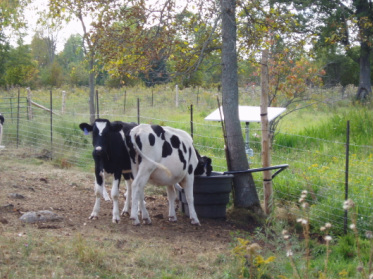
Solar water station installed on local farm after cattle exclusion fence completed.
The Charleston Lake Environmental Association (CLEA) annually provides generous funding to the Leeds-Grenville Stewardship Council (LGSC) for projects to improve water quality on the Lake. One of the objectives of the Charleston Lake Plan is to reduce excessive nutrient supply to the lake from all sources to prevent further enrichment and loss of oxygen. There can be a varying degree of nutrient runoff into the streams which feed Charleston Lake, depending upon the kinds of agricultural use
LGSC works with local farmers and non-farm landowners to exclude livestock from creeks, develop alternative watering sources, improve water crossings, restore trees and shrubs to shorelines, install nest boxes and rehabilitate wetlands and pastures. This work started in 2004 with four farm projects along Fosters Creek. Since 2006 LGSC has been focusing on the Beales Creek watershed. Thirteen more projects have been completed: twelve on properties on Beales Creek and one more on Fosters Creek.
Work on the stream projects is carried out by LGSC employee Donna O'Connor, Ontario Stewardship Rangers, Stewardship Council volunteers, and the farmers/ landowners.
The following activities(including 2001) have been completed, resulting in the exclusion of more than 1100 cows from the waterways.
LGSC has been able to lever the contributions from CLEA to find additional funding support from the Canada-Ontario Farm Cost Share programs, Environment Canada, the Ontario Ministry of Natural Resources, Wildlife Habitat Canada, Trees Ontario and Ducks Unlimited. Over $5.00 in funding has been received for every dollar invested by CLEA. There are also thousands of hours in labour contributed by the farmers, LGSC staff and volunteers and local students on the projects.
The Water Quality Reports for Charleston Lake Ontario by Ontario Lake Assessments indicates that "water quality continues to improve, total phosphorous values continue to decline and oxygen concentrations have improved considerably." These stream restoration projects and other CLEA initiatives appear to be contributing to the improvement of water quality on Charleston Lake.
For more information contact...Donna O'Connor.
LGSC works with local farmers and non-farm landowners to exclude livestock from creeks, develop alternative watering sources, improve water crossings, restore trees and shrubs to shorelines, install nest boxes and rehabilitate wetlands and pastures. This work started in 2004 with four farm projects along Fosters Creek. Since 2006 LGSC has been focusing on the Beales Creek watershed. Thirteen more projects have been completed: twelve on properties on Beales Creek and one more on Fosters Creek.
Work on the stream projects is carried out by LGSC employee Donna O'Connor, Ontario Stewardship Rangers, Stewardship Council volunteers, and the farmers/ landowners.
The following activities(including 2001) have been completed, resulting in the exclusion of more than 1100 cows from the waterways.
- Cattle exclusion fencing (kilometers) 16.3
- Alternative Watering Systems 16
- New/improved water crossings 11
- Retired pasture Hectares(acres): 24(60)
- Restored wetland - 1
- Tree planting (trees) 31,050
- Windbreaks/Shelterbelts- 4
- Bluebird boxes installed - 90
LGSC has been able to lever the contributions from CLEA to find additional funding support from the Canada-Ontario Farm Cost Share programs, Environment Canada, the Ontario Ministry of Natural Resources, Wildlife Habitat Canada, Trees Ontario and Ducks Unlimited. Over $5.00 in funding has been received for every dollar invested by CLEA. There are also thousands of hours in labour contributed by the farmers, LGSC staff and volunteers and local students on the projects.
The Water Quality Reports for Charleston Lake Ontario by Ontario Lake Assessments indicates that "water quality continues to improve, total phosphorous values continue to decline and oxygen concentrations have improved considerably." These stream restoration projects and other CLEA initiatives appear to be contributing to the improvement of water quality on Charleston Lake.
For more information contact...Donna O'Connor.
